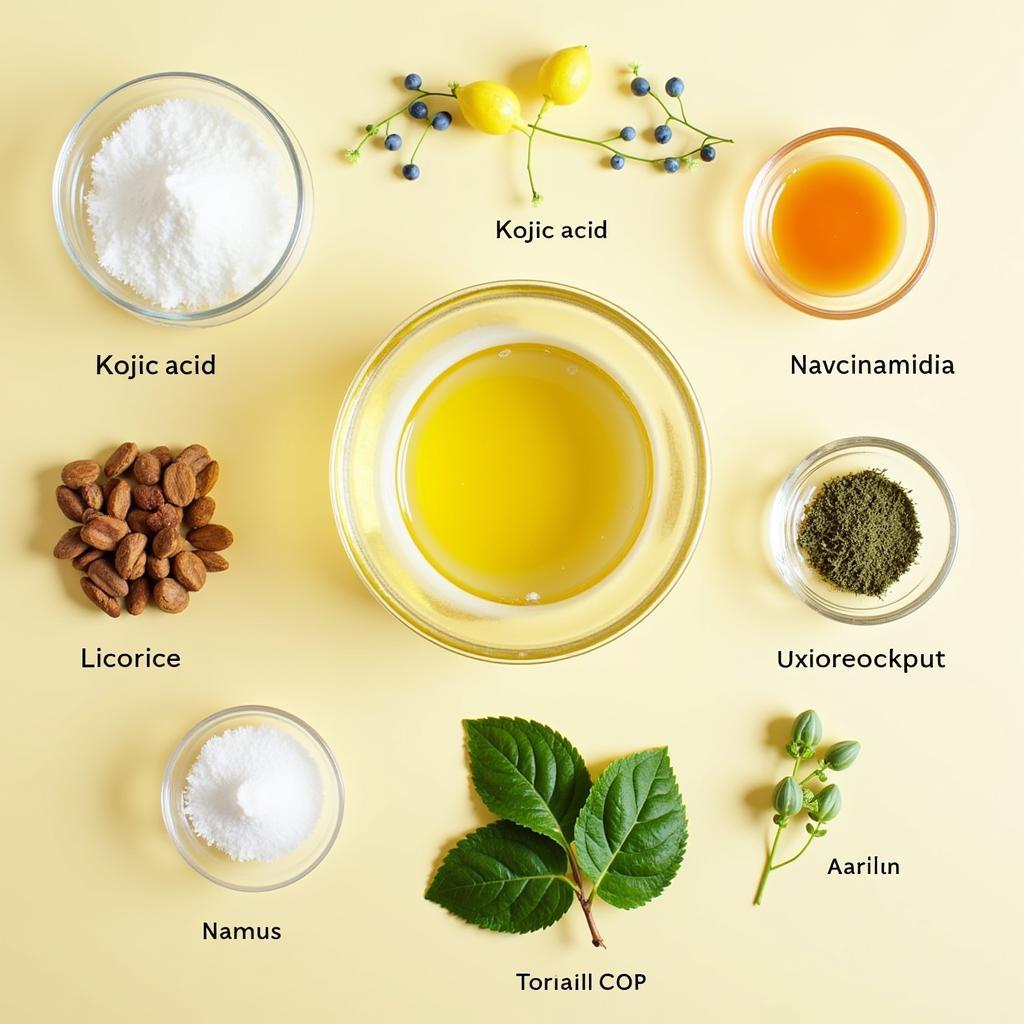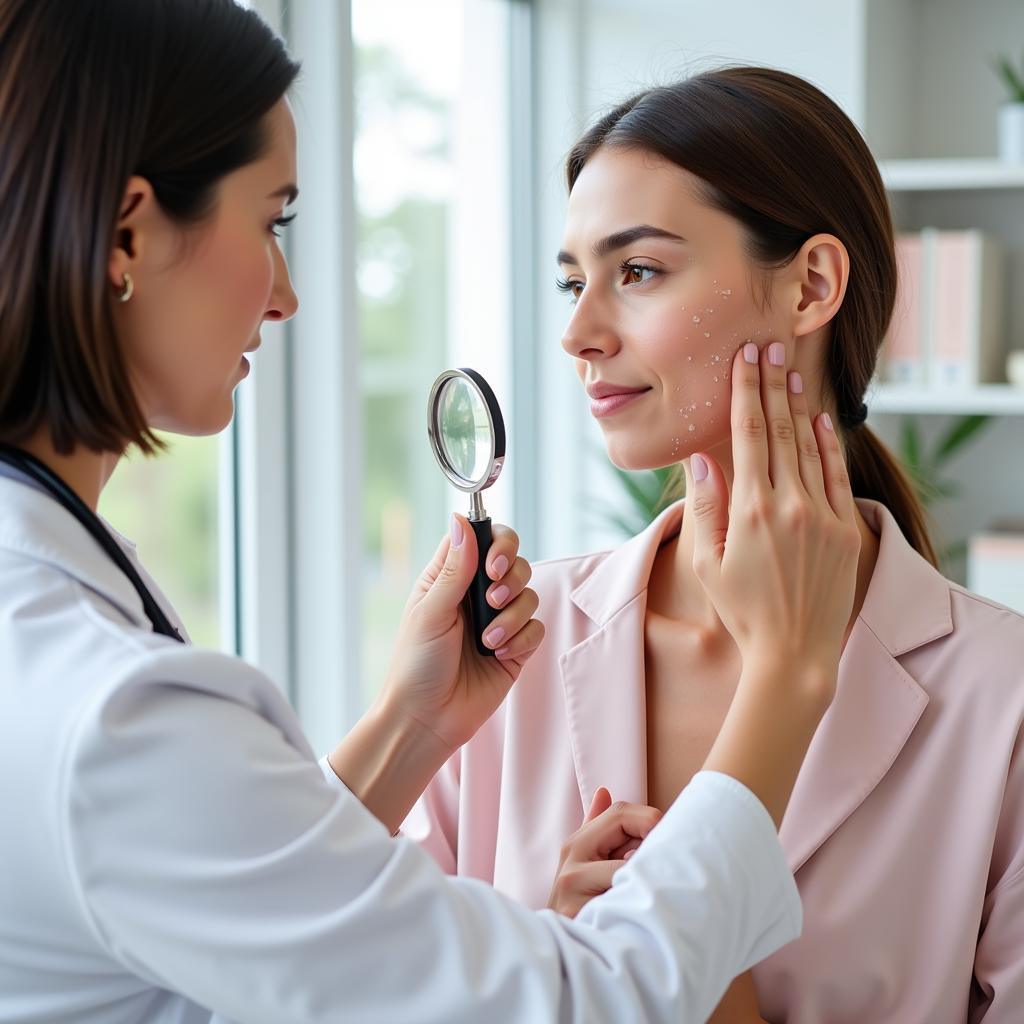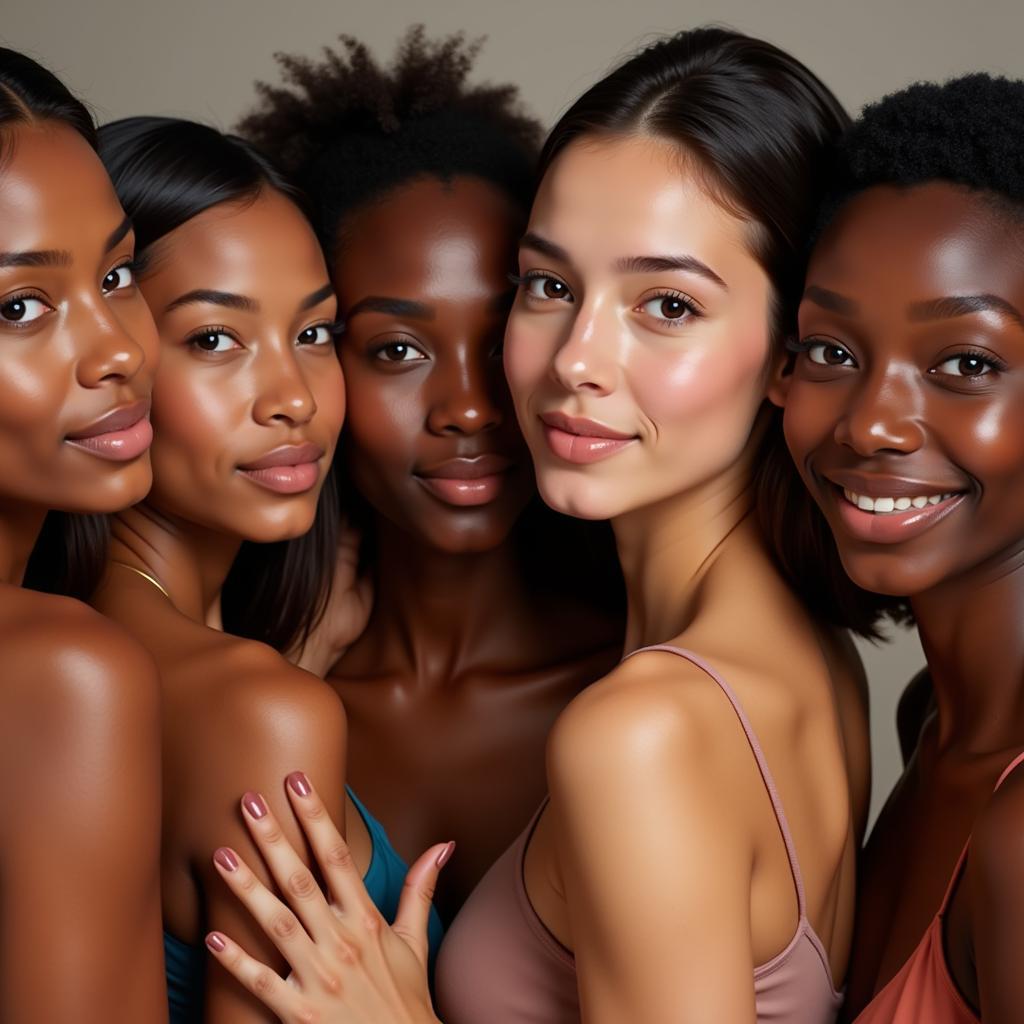The quest for brighter, even-toned skin is a common desire, particularly in South Asian countries like Pakistan. This has led to a surge in the popularity of skin-whitening creams, with countless brands claiming to be the “Pakistan No 1 Whitening Cream.” But how do you navigate this sea of promises and potential risks? This article delves into the world of skin-whitening creams, separating fact from fiction, and empowering you to make informed choices about your skincare.
Understanding the Allure of Whitening Creams
Skin tone is often associated with beauty standards and even social perceptions. Whitening creams tap into this desire for fairer skin, promising a quick fix to achieve the coveted glow. However, it’s crucial to remember that true beauty lies in embracing your natural skin tone and prioritizing skin health.
The Science Behind Whitening Creams
 Skin Whitening Ingredients
Skin Whitening Ingredients
Most whitening creams work by reducing melanin, the pigment responsible for skin color. Common ingredients include:
- Hydroquinone: A potent depigmenting agent that inhibits melanin production. However, it can cause skin irritation and is banned in some countries.
- Kojic Acid: A natural ingredient derived from mushrooms, known for its milder whitening effects.
- Arbutin: A natural derivative of hydroquinone, considered a safer alternative for reducing pigmentation.
- Niacinamide (Vitamin B3): Helps fade dark spots and improve skin tone, along with other benefits like reducing inflammation and minimizing pores.
- Licorice Extract: Contains glabridin, a compound known to inhibit melanin production and soothe inflammation.
Choosing the Right Whitening Cream for You
While the label “Pakistan no 1 whitening cream” might seem tempting, it’s essential to approach such claims with caution. Here’s what to consider:
- Ingredients: Look for creams containing safe and effective ingredients. Opt for natural alternatives whenever possible.
- Skin Type: Choose a cream formulated for your skin type to avoid irritation or breakouts.
- Sun Protection: Opt for creams with SPF to protect your skin from further sun damage, as UV exposure can darken existing pigmentation.
- Dermatologist Recommendation: Consult a dermatologist to determine the best course of action for your skin concerns and medical history.
 Dermatologist Examining Patient's Skin
Dermatologist Examining Patient's Skin
Beyond Whitening Creams: Holistic Skin Care
While whitening creams can play a role in addressing pigmentation, a comprehensive approach to skincare yields long-lasting results.
- Sun Protection: Daily application of sunscreen with a high SPF is crucial to prevent further darkening of pigmentation.
- Healthy Diet: Consume a balanced diet rich in fruits, vegetables, and antioxidants to nourish your skin from within.
- Hydration: Drink plenty of water to keep your skin hydrated and support its natural renewal process.
- Gentle Exfoliation: Regularly exfoliate your skin to remove dead skin cells and promote a brighter complexion.
- Stress Management: Chronic stress can negatively impact skin health. Engage in stress-reducing activities like yoga, meditation, or spending time in nature.
The Importance of Realistic Expectations
It’s important to approach whitening creams with realistic expectations. While they can help fade existing pigmentation and even out skin tone, they won’t drastically change your natural complexion.
Conclusion
The quest for brighter skin should prioritize both effectiveness and, most importantly, safety. Rather than falling for bold claims like “Pakistan no 1 whitening cream,” focus on understanding your skin, choosing products with safe and effective ingredients, and embracing a holistic approach to skincare. Remember, true beauty radiates from healthy, well-nourished skin.
FAQ
- How long does it take for whitening creams to show results?
Results vary depending on the cream’s ingredients and individual skin types. It’s essential to use the product consistently as directed and manage expectations. - Are there any side effects of using whitening creams?
Some ingredients, like hydroquinone, can cause skin irritation, redness, or sensitivity. Always perform a patch test before applying a new product to your entire face. - Can I use whitening creams if I have sensitive skin?
It’s best to consult a dermatologist before using whitening creams, especially if you have sensitive skin. They can recommend products formulated for your specific needs. - Can men use whitening creams?
Yes, whitening creams can be used by anyone, regardless of gender. The key is to choose a product suitable for your skin type and concerns. - Is it safe to use whitening creams during pregnancy?
Consult your doctor before using any new skincare products during pregnancy, as some ingredients might not be safe for expectant mothers.
 Healthy, Glowing Skin
Healthy, Glowing Skin
Need More Information?
Have more questions about skincare or need personalized advice? Our team of experts is here to help!
Contact us:
Phone: +923337849799
Email: [email protected]
Address: Dera Ghazi Khan Rd, Rakhni, Barkhan, Balochistan, Pakistan.
We have a 24/7 customer care team ready to assist you.